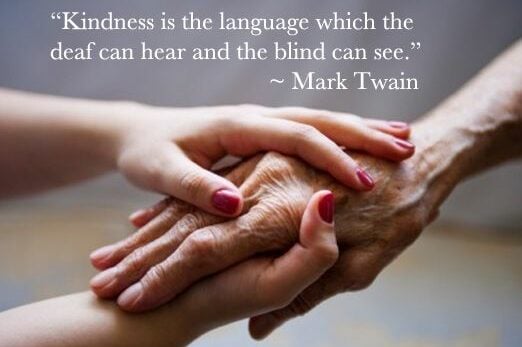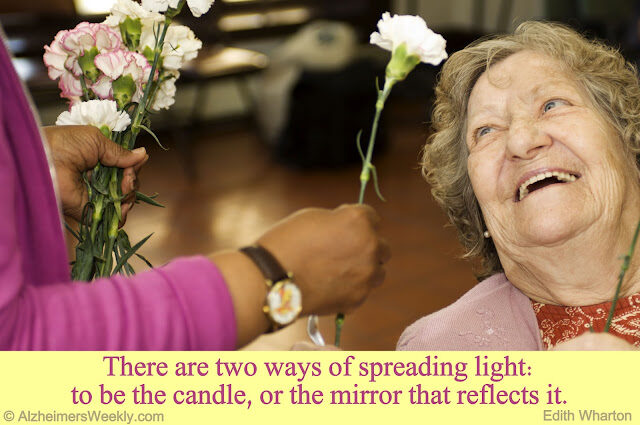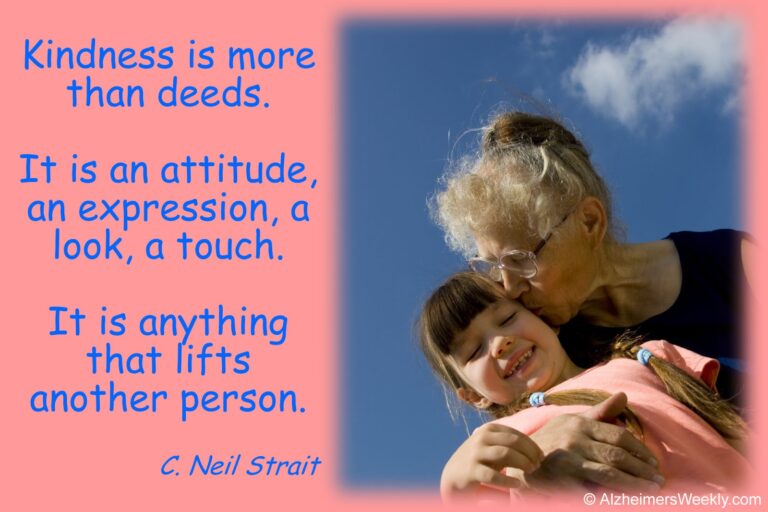
Thought of the Week: Love & Kindness Bless
Love & kindness are never wasted. They always make a difference. They bless the one who receives them, and they bless you, the giver.

Love & kindness are never wasted. They always make a difference. They bless the one who receives them, and they bless you, the giver.

Do not judge. You don’t know what storm I’ve asked her to walk through. – God

A kind word is like a spring day.

Kindness is the language which the deaf can hear and the blind can see. (Mark Twain)

Michael J. Fox: “One’s dignity may be assaulted, vandalized and cruelly mocked, but it can never be taken away unless surrendered.”

“All that I am, or hope to be, I owe to my angel mother.” (Abraham Lincoln)

She is brave and strong and broken all at once.

There are two ways of spreading light. To be the candle, or the mirror that reflects it. (Click to get this on T-shirts, cards, magnets,

There is much in the world to make us afraid. There is much more in our faith to make us unafraid. (Fredrick W. Cropp)

Kindness is more than deeds.
It is an attitude, an expression, a look, a touch.
It is anything that lifts another person.

Salk Institute’s J147 is a derivative of turmeric, a spice used in curry. Learn how it fights memory deficits and has a host of unexpected anti-aging effects in the lab.

FDA approves a newly recommended dosing schedule for Kisunla (Donanemab). It’s significantly safer due to lowered ARIA-E rates, which has been the main problem with these drugs.

A nutrient hidden in your daily meals could hold the key to preventing and slowing Alzheimer’s. Discover what Arizona researchers are revealing about the power of choline.

SHORT-TERM MEMORY lapses are obvious signs of Alzheimer’s, but other tell-tale signals begin to show much earlier. Learn how to look for semantic impairments, such as simple questions about size.

Three important dementia studies focus on HS-AGING, a type of dementia almost as common as Alzheimer’s in the 85+ group. Yet few people have heard of it. Why? What makes it different?

An intriguing study of 120 grandmothers might surprise you. Doctors know socially engaged people have better cognition and less dementia. But can a person get too much of a good thing? What’s the right balance?

Enjoy this great duet between a musician with dementia and his son. A triumph of spirit over Alzheimer’s! Sing-a-long if you like!
No spam, only news and updates.


